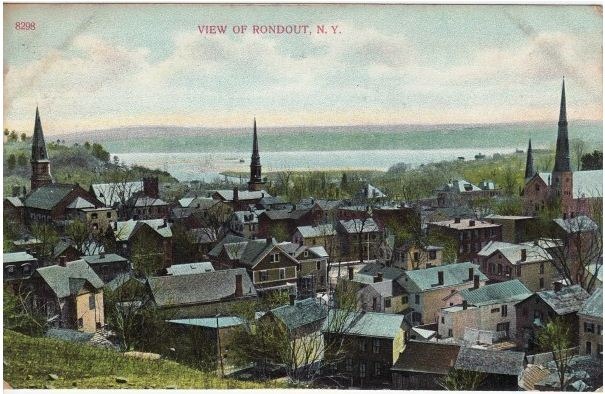
April 22 – 48
Our village is all life and commotion – the Canal opens on Monday and the whole country is like a nest of hornets stirred up with a crooked stick – Canal horses such as have unfortunately for themselves survived the winter – rejoicing with the first feed of oats for the season an making desperate attempts at a prance or run and striving to show off their anatomy to the best advantage – Ropes – canvases pitch – paint &c. are flying about: some in red flannel shirts and boys dressed in every varity of costume remarkable principally for its ingenius adaptation to forms it was never intended for – one article a Fathers pantaloons turned up at the bottom and down at the top with a button sewed on the back to fasten them after going once and a half on twice round – an old straw hat – an older brothers perhaps – fitted to the head with a rope yarn drawn tight near the (illegible) – large (illegible) to allow for growth of the fur – a ragged woolen tie for the neck and a discarded stump of a sigar in the mouths of the most precocious completes the figure of the most important feature of the business the “canal boy” This boy is known at a glance first by the characteristics I have enumerated – by his swagger, his ready tongue, his independent, “I cares – for nobody and nobody cares for me” sort of an air and by a black eye or swelled nose the result of the many conflicts he is necessarily engaged in – The rudiments of a Canal boys education are first to swear well then to fight – and to stand privation in every form – wet or dry hot or cold – day or night must have no effect on them – they must learn to endure without (illegible) the weight of the Captain fist occasionaly or a knock down from a bigger boy – The “Boy” must also be a connoisseur in horse flesh and a judge of oats – steering the boat is the poetry of the profession the tiller the Canal boys paradise – and his dreams (if he dreams at all in the short broken sleep allowed him) are of a “fast horse” with two eyes – and harness of bright leather – a rope without knots – a boat with a yellow or red streak around it and a tiller painted green with himself at it – dignified with the title of Captain
Abijah Smith has laid out a new village opposite Wilbur named “New Salem” – and Lithographic plans are plastered up everywhere – weather very fine and springlike
